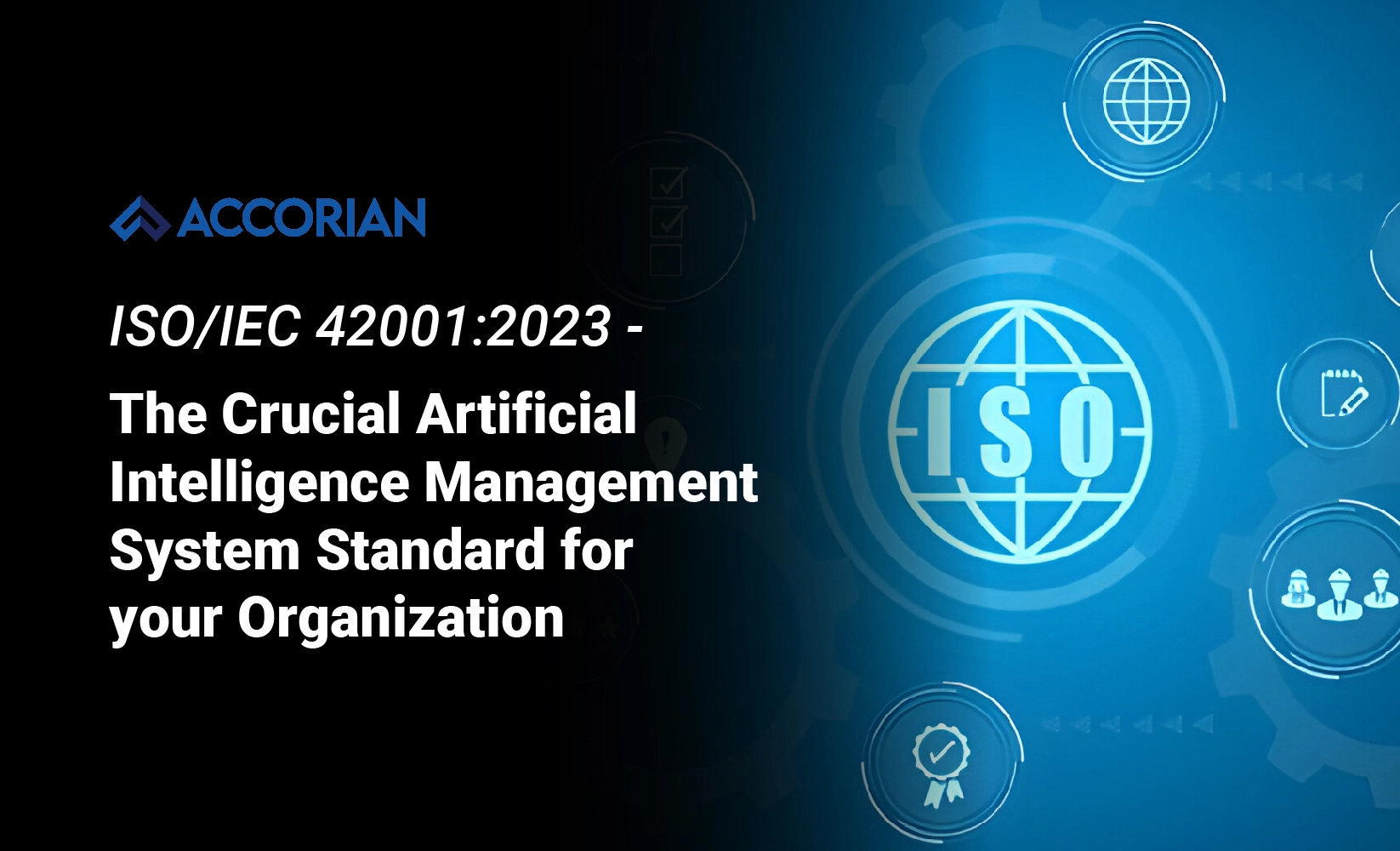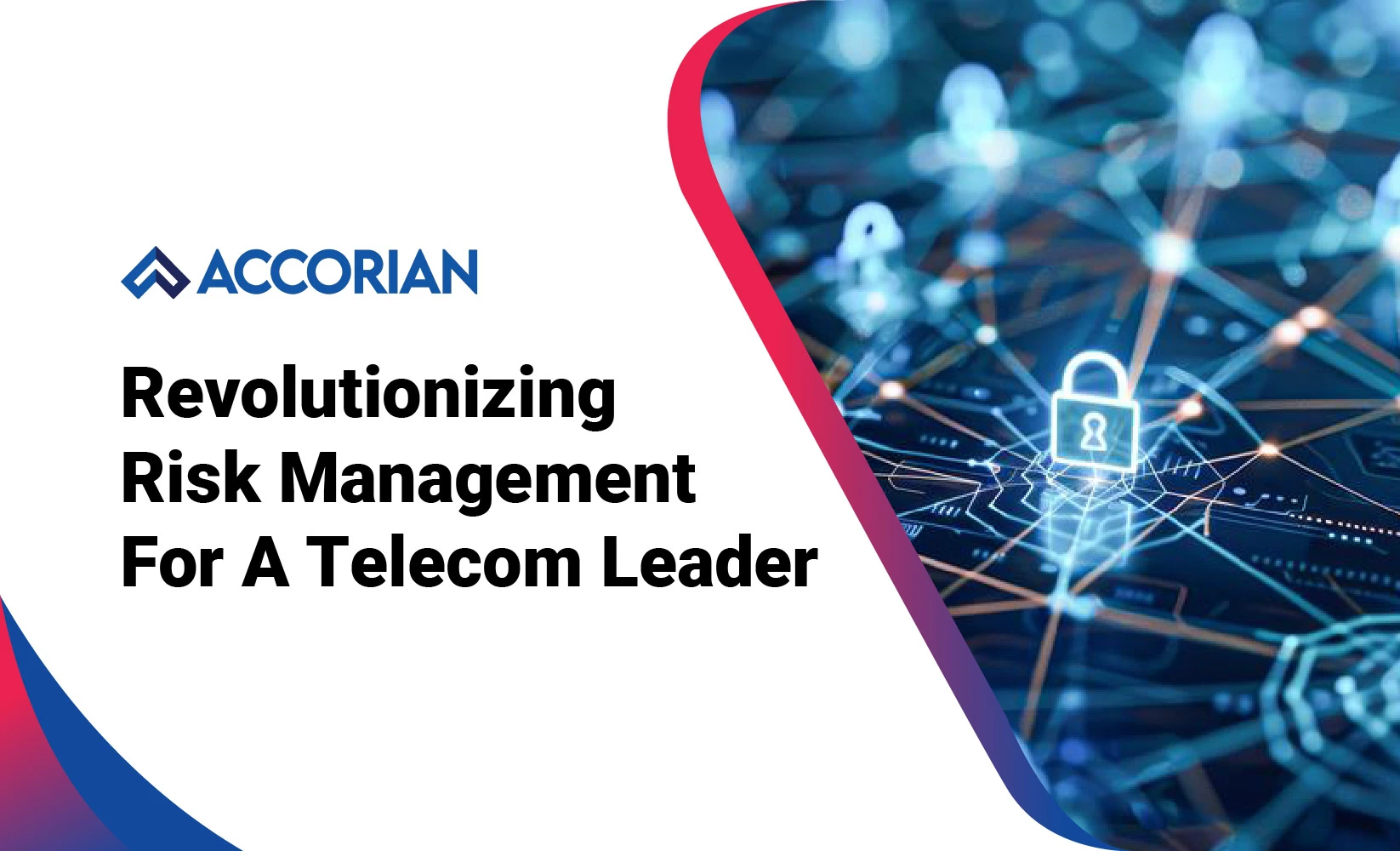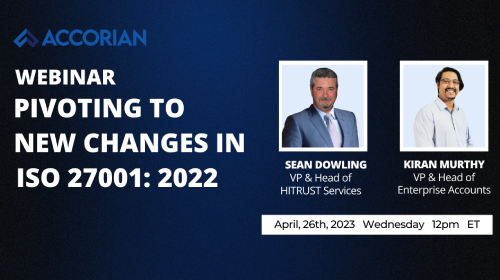ISO 27001 Certification
(Information Security Management System)
The ISO 27001 standard helps safeguard the information confidentiality and integrity of an organization. This widely accepted standard assists in setting up a strong Information Security Management System (ISMS) that enables risk reduction and builds confidence among clients as well as associates.
Accorian, backed by a team of 75+ seasoned ISO auditors and implementors, streamlines the journey to ISO certification through unmatched expertise.
What is an
ISO 27001 Certification?
ISO 27001 is one of the most recognized standards for information security management. It takes a risk-based approach to safeguard data, processes, and technology by establishing an Information Security Management System (ISMS) and continuously improving it. The ISO 27001 certification shows an organization’s commitment to proper data confidentiality, integrity, availability, etc. The framework helps organizations secure critical assets, validate against legal obligations, and tailor security controls based on organizational threats. It also defines documentation, management responsibility, internal audits, continuous improvement, and corrective and preventive action.
Why Should You Adopt ISO 27001?
Organizations can sustain their information assets’ confidentiality, integrity, and availability with ISO 27001 certification, which uses a methodical strategy to recognize, evaluate, and resolve security risks. This internationally acclaimed information security management system gives organizations a competitive advantage and helps them stay ahead in data security. Here are some of the key reasons why you should adopt ISO 27001:
01
Enhances Security Posture
Implementing ISO 27001 provides a systematic approach to information security, enabling organizations to identify and mitigate threats to sensitive data, thereby protecting their reputation and preventing data breaches.
02
Increases Customer Trust
With growing concerns about data privacy, ISO 27001 certification demonstrates a commitment to information security, reassuring customers that their data is secure and fostering long-term loyalty and retention.
03
Improved Processes
The framework encourages establishing efficient and effective information security processes that can streamline operations and enhance effectiveness.
04
Safeguarding Intellectual Property
ISO 27001 protects intellectual property and brand integrity, ensuring a solid professional standing within the industry.
05
Improves Operational Efficiency
With growing concerns about data privacy, ISO 27001 certification demonstrates a commitment to information security, reassuring customers that their data is secure and fostering long-term loyalty and retention.
06
Competitive Advantage
Strong information security is a key differentiator in today’s data-driven market, giving organizations a competitive edge in attracting new clients and partners.
07
Talent Attraction
ISO 27001 attracts top-tier, security-conscious personnel dedicated to enhancing the organization’s security posture.
08
Regulatory Compliance
The framework helps organizations adhere to security and privacy regulations, reducing the risk of penalties.
09
Reduces Costs
A robust information security approach can prevent costly data breaches, mitigating their financial impacts and leading to significant cost savings.
Accorian’s Proven Approach
ISMS Development
- Understanding the Organization & Finalizing Scope
- Defining the ISMS Policy
- Identifying Asset & Criticality
Gap Assessment
Assessing Information Security Against ISO 27001 Requirement
Risk Assessment
- Identifying Threats and Vulnerabilities
Risk Mitigation & Security Framework Development
- Deducing Risk Appetite
- List of Existing Controls and Identification of Gaps
- Risk Treatment Plan
Review/Draft of Policies & Procedures
- Assessing Existing Policies & Procedures
- Leveraging Accorian Baseline Documents
- Incorporating Risk Assessment Findings
- Drafting Customized Policies, Procedures & Controls
Implementation Support (Optional)
- Providing Query Resolution Support via E-Mail & Calls
- Training & Awareness Audit Preparation
- Selecting Control Products & Services
Certification Support
- Pre-Auditing
- Identifying Final Gap
- Remediating Gaps
- Auditing Phase Stand-By Support
How Can Accorian Assist You with ISO 27001?
Accorian is one of 10 Accredited companies that offer both audit & testing services inhouse. Our collaborative approach assists organizations in effectively preparing materials for necessary adjustments and ensures a seamless transition toward compliance.




